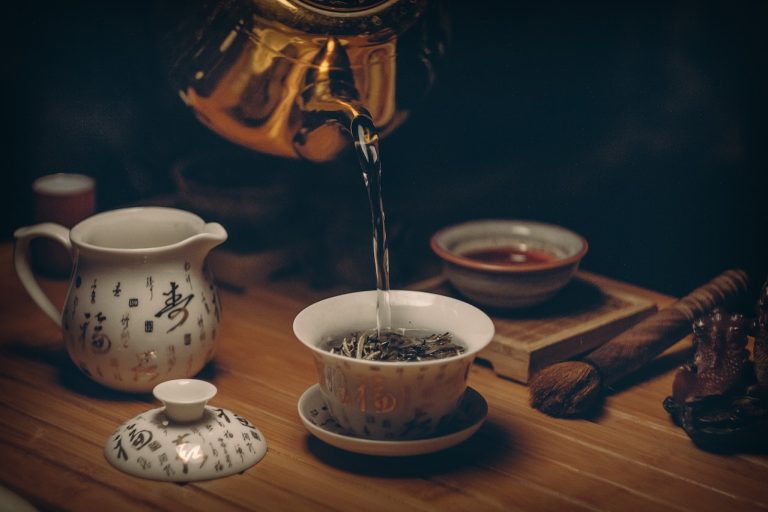According to a 2019 National Survey on Drug Use and Health (NSDUH), 54.9 percent of people aged 18 and older in the U.S. reported drinking alcohol in the past month, and 25.8 percent reported binge drinking in the past month. Nearly 15 million people aged 12 and older had alcohol use disorder at the time of the survey.
Tea is also a widely consumed beverage, second only to water. In 2021, Americans enjoyed nearly 85 billion servings of tea, or more than 3.9 billion gallons. On any given day, more than 159 million people in the U.S. are drinking tea.
Given the enormous amounts of alcohol and tea consumption in the U.S., are there associated long-term effects on health? Two studies published in Aug. 2022 found that alcohol consumption was associated with higher risks of cancers, while tea intake was associated with lower mortality rates.
Alcohol and higher cancer risk
In a cohort of over 4.5 million Korean adults who underwent national health screening in both 2009 and 2011, researchers categorized subjects based on self-reported alcohol consumption levels into “none (0 g/d), mild (<15 g/d), moderate (15-29.9 g/d), and heavy (≥30 g/d) drinking” groups.
MORE ON SCIENCE AND HEALTH
- Ultra-processed Foods Associated With Cancer, Early Death
- Study: Electrical Brain Stimulation Boosts Memory
- Diagnosing Parkinson’s Disease With Artificial Intelligence and Breathing
Based on changes in drinking habits from 2009 to 2011, they were then categorized into “nondrinker, sustainer, increaser, quitter, and reducer” groups.
Success
You are now signed up for our newsletter
Success
Check your email to complete sign up
The study, published in JAMA Network Open on Aug. 24, primarily looked at newly diagnosed alcohol-related cancers including “head and neck, esophagus, colorectum, liver, larynx, and female breast” cancers, but also included other cancers.
There were 215,676 new cancer events during the median follow-up period of 6.4 years, with an overall incidence rate of cancer of 7.7 per 1,000 person-years.
Subjects who did not drink in 2009 but had mild, moderate, or heavy drinking by 2011 had higher rates of alcohol-related cancers with 95 percent confidence intervals of 1.00 to 1.06, 1.02 to 1.18, and 1.23 to 1.45, respectively.
These confidence intervals reflect a 95 percent probability that the true rate of cancers in the population lies between the upper and lower bounds of the interval.
Similarly, people with mild drinking in 2009 but moderate or heavy drinking in 2011 had increased risks of cancer with confidence intervals of 1.05 to 1.15 and 1.09 to 1.25, respectively. Therefore, a dose-response association was observed in groups with increased amounts of alcohol consumption, with a larger increase in cancer risk associated with a larger increase in drinking.
Specifically, the increaser (from the non-drinking) group was found to have a “high incidence of stomach, liver, gallbladder, and lung cancer; multiple myeloma; and leukemia.” The majority of analyses involving reduced drinking among participants from 2009 to 2011 showed lower rates of alcohol-related cancers, with a continued trend seen with 2013 screening data.
Tea and lower mortality risk
A National Institutes of Health (NIH)-funded study conducted by researchers at the NIH and Northwestern University Feinberg School of Medicine in Chicago, Illinois evaluated the relationship between tea consumption and mortality. Nearly 500,000 men and women between the ages of 40 and 69 who completed a baseline questionnaire between 2006 to 2010 were followed for a median of 11.2 years.
Participants were an average age of 56.5 years old, and 94 percent self-reported being White. 85 percent reported drinking tea, with most drinking “2 to 3 (29%), 4 to 5 (26%), or 6 to 7 (12%) cups per day.” Several possible confounders existed besides the large percentage of White subjects, including how moderate tea drinkers were “less likely to be current smokers than nontea drinkers or heavy tea drinkers.”
Heavy tea drinkers were “more likely to be men, obese, and to live in England. They also tended to drink less coffee and eat more red and processed meat compared with less frequent and nontea drinkers.” However, history of cancer, cardiovascular disease, and diabetes did not differ between heavy tea drinkers and other groups.
A total of 29,783 deaths occurred during the follow-up period of up to 14 years, and, “Higher tea intake was associated with modestly lower mortality risk.” Specifically, higher tea intake was associated with lower risks for mortality from cardiovascular disease, ischemic heart disease, and stroke. When excluding coffee drinkers, lower risk was observed when comparing tea drinkers of at least 2 cups per day compared to drinkers of 1 cup or fewer daily.
Caffeine cannot explain these mortality benefits, as “Similar associations for tea drinking were seen among participants who had both lower and higher genetic capacities for caffeine metabolism.”
Although 90 percent of the habitual tea drinkers in the study reported consuming black tea, many prior studies in Asian populations reported similar results with predominantly green tea drinkers.
The authors highlight the presence of polyphenols, flavonoids, and other bioactive compounds in teas with the potential to “reduce oxidative stress and inflammation, which may promote carcinogenesis, and improve endothelial function.”
Furthermore, higher tea consumption has been linked to lower levels of cardiometabolic biomarkers such as cholesterol and triglycerides.















